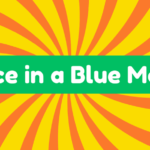The phrase "out of the blue" describes events that arise suddenly and without warning, capturing surprise. Its origin stems from "a bolt from the blue," symbolizing unpredictable occurrences, much like a flash of lightning. Examples include unexpected visits or shocking news, as in "The award nomination came out of the blue for him." This expression remains relevant in modern society, reflecting our encounters with the unexpected and highlighting the complexities behind such surprises. More insights await those curious about its applications.
Synonyms
The phrase "out of the blue" has several synonyms that can effectively convey the unexpected nature of an event. These alternatives can enrich conversations about unexpected events or sudden surprises. Each synonym carries its nuances, emphasizing the element of surprise more vividly. Consider the following options:
- A bolt from the blue
- Out of nowhere
- Out of left field
- A sudden turn of events
- Completely unpredicted
Example of Sentences
Unexpected occurrences often prompt curiosity about how they can shape our experiences, especially when they arise without warning. The phrase "out of the blue" captures these unexpected moments effectively. Consider the following examples:
- "Out of the blue, a deer came in front of my car."
- "Then, out of the blue, Maggie arrived."
- "The award nomination came out of the blue for him."
- "Junior running away from home was out of the blue."
- "The divorce news came out of the blue."
These instances illustrate how surprising news can dramatically alter one's reality, emphasizing the unpredictable nature of life.
Origin
Evolving from the idiom "a bolt out of the blue," the phrase "out of the blue" captures the essence of surprise and unforeseen events. Its transformation highlights idiomatic evolution influenced by cultural contexts. The vivid imagery of lightning serves as a reminder of unpredictability in life.
| Historical Reference | Modern Interpretation |
|---|---|
| "A bolt from the blue" | A sudden, unexpected event |
| Cultural origins | Influences perceptions |
| Expresses shock | Evokes emotion |
| Emphasizes rarity | Highlights uniqueness |
| Related idioms | Reinforces unexpectedness |
The phrase continues to resonate, though its origin deserves critical exploration.
Collocations
Collocations involving the phrase "out of the blue" often enrich its contextual meaning, illustrating how the expression manifests in everyday language. These groupings can emphasize the surprise situations or unexpected moments that life throws at us. Importantly, certain phrases resonate more profoundly when paired with "out of the blue," including:
- Arrived out of the blue
- Came out of the blue
- Happened out of the blue
- Surprised out of the blue
- Caught out of the blue
Such combinations not only enhance understanding but invite reflection on how swiftly life can change, reminding individuals of the unpredictable nature of existence.
How to Use in Everyday Language
Incorporating the phrase "out of the blue" into everyday language requires a discerning approach, as its use can greatly affect the clarity and impact of communication. Everyday applications of this phrase can be found in conversations around sudden events or unexpected surprises. For effective contextual usage, individuals should consider the audience and situation; employing the phrase during storytelling or in casual dialogues about abrupt changes can enhance relatability. However, overusing it may dilute its significance. Practitioners of language should aim for precision, ensuring that "out of the blue" elevates the dialogue rather than becoming a clichéd expression devoid of meaning.
Why Is It Still Relevant Today?
Why does the phrase "out of the blue" continue to hold significance in modern language? Its cultural significance persists, resonating as a descriptor for unexpected events that can alter one's life dramatically. In contemporary scenarios, it finds modern applications in discussions surrounding innovation, creativity, and unforeseen changes in technology and society. As individuals navigate a world rife with unpredictability, the phrase embodies their experiences of sudden revelations or surprises. However, it is crucial to critically assess the reliance on such idioms, recognizing that while they capture essence, they should not overshadow the need for deeper understanding of underlying complexities in unexpected occurrences.






